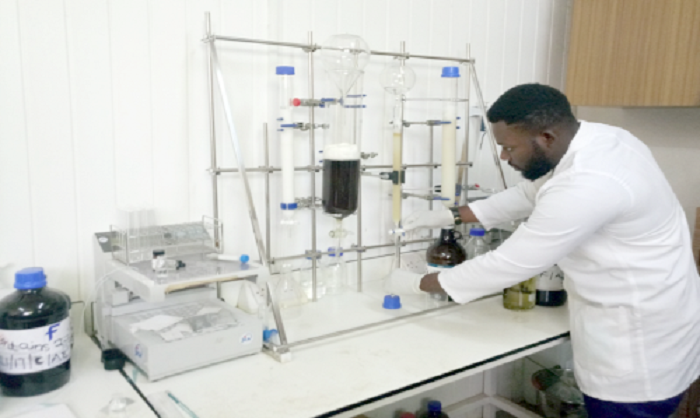I have been asked intriguing questions on herbal medicine on several occasions, on different platforms by people from diverse backgrounds.
From my interactions with people from different cultures, profession, and social actors, certain questions are inevitable.
Some get argumentative, others are indifferent, while others easily get convinced about the answers I provide from the marketing perspective, and those provided by scientists from the research perspective.
But the question is why these issues are common among diverse groups.
Perhaps some have misconceptions and or convictions about the field of herbal medicine that need unmasking to ascertain their veracity.
The writer would, however, touch on the three most common concerns.
Question 1: Can one
herbal product cure many diseases?
Of all the questions frequently posed, this seems to be the most contentious. It is ambiguous for some people to appreciate why one herbal product should have multiple indications.
Maybe this simple analogy will help: According to the World Health Organisation-W.H.O., 25 per cent of modern medicines originate from plants which were first used traditionally.
Some of these orthodox medicines derived from plants are used for treating multiple health conditions.
For example, aspirin, a single chemical compound product is a synthetic orthodox medicine, but its development is based on the traditional use in Europe of plants such as willow (Salix spp.) and meadowsweet (Filipendula ulmaria) to treat rheumatism and general aches and pains. (Journal of chemical education. vol. 78 No. 2 February 2001; jChemEd.chem.wisc.edu)
Aside using it for pain-related conditions, aspirin also helps prevent clots, and may also be used in the treatment of heart attack, stroke, peripheral arterial disease, coronary artery bypass, colds, flu, fever and certain cancers etc.
Also, compared to orthodox medicines which contain only one or two active constituents, medicinal plants, and for that matter herbal medicines, contain multiple compounds some of which are active while others are not.
It is, thus, fit to say from the above analogy that one herbal product can treat multiple disease conditions.
Moreover, there are a number of pharmacological studies that have supported the claim that one herbal preparation can treat multiple diseases.
The problem, however, arises when one overstates the claim of the potency of the product without scientific evidence. That is, when the claim is not supported by hard data or for better word, research. For the purposes of safety and education, therefore, marketers of herbal medicines must stick to claims that are supported by research.
Question 2: Do
herbal medicines have side effects?
The thesaurus defines side effect as “any effect of a drug, chemical, or other medicine that is in addition to its intended effect, especially an effect that is harmful or unpleasant”. I learnt also that a side effect can be positive theoretically, but for the purpose of this discussion, let’s stick to the adverse effects.
I am told that even water can have harmful effects when taken in excess.
Fact is that, any medication, including herbal medicine, can have adverse effects.
Such harmful effects could arise from overdose, herb-drug interaction, an individual’s reaction to an ingredient in the medicine, adulteration or contamination of the herbal product and irrational use.
The fact that a side effect has not been reported does not mean it is non-existent. At the same time, one must not link a herbal product to an adverse reaction without scientific evidence. This is the dichotomy which sometimes arises between proponents and protagonists of herbal medicine . Again, the veracity or otherwise of a herbal medicine having adverse effects or not, to a large extent, hinges on research.
Question 3: Is herbal medicine safe because it is natural?
I have also heard claims by some sellers of herbal medicaments that it is safe because it is natural.
Fact is that, naturality does not mean or guarantee safety. In my previous topic, “safety issues in herbal medicine”, I indicated the two main criteria for assessing the safety of herbal medicine according to the World Health Organisation(WHO) which are long period of traditional use, and scientific-based evidence. So the mere fact that it is natural does not mean it is safe.
The role of scientific research
Among the major steps towards promoting safe and rational use of herbal medicine were the establishment of the Centre for Plant Medicine Research in Mampong Akwapim and the training of medical herbalists by the School of Pharmacy of the Kwame Nkrumah University of Science and Technology.
“Men love to wonder, and that is the seed of science” says the American essayist, Ralph Waldo Emerson.
Let me also borrow the words of Albert Szent-Gyorgyi, the Hungarian-American Biochemist who said, “if I go out into nature, into the unknown, to the fringes of knowledge, everything seems mixed up and contradictory, illogical, and incoherent. This is what research does; it smooths out contradictions and makes things simple, logical and coherent”
Certainly in any discipline, there are a myriad of questions, doubts, confusion, arguments etc whose veracity or otherwise can be nailed by scientific research. Herbal medicine is no exception and so continuous scientific research is the surest way to establish the facts and truths for quality assurance.
The writer is Commercial Manager of the Centre for Plant Medicine Research
E-mail: mikaelbremfi@yahoo.com

